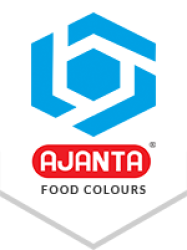Bangladesh, officially known as the People's Republic of Bangladesh is the 8th largest country by population in the world, situated on the South Asian continent. The country shares its land border with India to the north, west, and east, and from Myanmar to the southeast. Bangladesh shares a sea border with the Bay of Bengal to the south. Bangladesh is famous for its natural beauty, rich culture, and manufacturing industry.
In the manufacturing of any product, there are many components required and every component plays a crucial role. Some help in the manufacturing of the products while others help in improving the appearance of the products that attracts the attention of the consumers and boosting the product sales.
Bangladesh manufactures colours, but the production is not sufficient to meet the country's overall colour-related demands. To fulfill these demands, Bangladesh imports synthetic or natural food colours from other countries. Some of the major exporters of colours to Bangladesh include India, China, and Turkey.
Bangladeshi Industries Where Colours Play a Vital Role
Colours play an important role in the various manufacturing industries of Bangladesh, here we talk about some of the industries where colours play a vital role:
Food and Beverage Industry
In the food and beverage manufacturing industry of Bangladesh, colours play a crucial role. Colours enhance product appeal, attracting consumers and encouraging purchases. However, Bangladeshi food and beverage manufacturers often face some challenges in selecting the right colour for their products. They want colours that do not fade or change on their products over time. Synthetic food colours can be the best option for Bangladeshi food and beverage manufacturers as these colours come in various vibrant shades that increase the product sales and brand recognition in the market. Synthetic food colours are also an affordable option compared to other colourant alternatives like natural food colours. Most of the food and beverage manufacturing industries of Bangladesh are located nearby its big cities like Dhaka, Chittagong (Chattogram), Kushtia, Rajshahi, and Sylhet. According to Statista, the food market of Bangladesh is expected to reach US$1,937.00m in 2025 and it is amounted to grow with an annual growth rate (CAGR 2025-2029) of 13.42%, resulting in a projected market volume of US$3,206.00m by 2029.
Cosmetics Industry
Colour is a vital component of cosmetic products. It offers an appealing look to a range of cosmetics and personal care products including lipsticks, eyeshadows, mascaras, nail polishes, face wash, foundation, brushes, soaps, body lotions, and makeup removers. These vibrant-coloured cosmetic products attract the attention of consumers and boost product sales. Still, manufacturers of cosmetic products in Bangladesh face many challenges during selecting the right colour for their products. Cosmetic manufacturers want stable and premium colours that do not fade over time and make cosmetic products appealing for a long time. Bangladeshi cosmetic manufacturers can overcome these challenges by using synthetic food-grade colours for their products. These colours are specially created for use in cosmetic products and do not fade or change during the manufacturing and storage of the products. Most of Bangladeshi cosmetic manufacturing industries are located in Dhaka, Chittagong (Chattogram), and Narayanganj. According to Statista, the revenue of the cosmetic manufacturing industry of Bangladesh is expected to reach US$1.34bn in the year of 2025 and it is projected to grow annually by 3.71% (CAGR 2025-2029).
Pharmaceuticals Industry
Colours also play a crucial role in the pharmaceutical manufacturing industry. It makes the medicines such as tablets, capsules, suspensions, syrups, and health supplements appealing in different colours that help differentiate the medicines and reduce the chances of taking the wrong medicines. These appealing coloured medicines increase the brand recognition of the medicines in the market. However, pharmaceutical manufacturers of Bangladesh often face some challenges in selecting the right colour for their products. They want stable and premium quality colours for their medicines manufacturing that do not spoil or fade over time. In this, synthetic food-grade colour can be the best option for Bangladeshi pharmaceutical manufacturers. These colours provide stability and consistency to medicines that do not spoil in various conditions. Most of the pharmaceutical manufacturing industries in Bangladesh are located near Dhaka, Chittagong (Chattogram), Gazipur, and Narayanganj. According to Statista, the revenue of the pharmaceutical manufacturing industry is amounts to be US$1,814.00m in 2025 and it is expected to grow with an annual growth rate (CAGR 2025-2029) of 0.37%, leading to a market volume of US$1,841.00m by 2029.
Chocolate Industry
In Bangladesh, colours play an important role in the chocolate manufacturing industry. Colours make the chocolate products appealing to consumers, especially kids, and women who are the prime consumers of chocolates. Still, chocolate manufacturers in Bangladesh often face some challenges in selecting the right colour for their products. The manufacturer requires stable and safe colours for their products. Synthetic food colour can be the best option for chocolate manufacturers in Bangladesh, as these colours give an appealing final look to chocolate products and they are approved by various governmental bodies around the world including FDA, ESSAI, and FSSAI. In Bangladesh many colour merchants, distributors, and traders import colours from other countries at low prices and sell them to the Bangladeshi market at high costs by doing so they earn a profit on each deal. Some of them sell the colours under the same brand name from which they bought colours while others create their own labells and sell under their own branding. In Bangladesh, most of the chocolate manufacturing industry is located near big cities like Dhaka, Chittagong (Chattogram), and Narayanganj. According to Statista, the revenue of the confectionery market of Bangladesh amounts to US$10.67bn in 2025 and it is expected to grow annually by 10.12% (CAGR 2025-2029).
Animal Feed Industry
In the animal feed manufacturing industry colours play crucial roles. It provides an appealing and bright look to animal feeds that encourages the animals to feed properly and stay healthy. Colours also help in the differentiation of various animal feed including poultry, swine, or cattle. However, pet food manufacturers in Bangladesh often face some challenges in selecting the right colour for their products. They want vibrant and stable colours that make animal feed appealing and do not fade the feed over time. Synthetic food colours can be the best option for Bangladeshi animal feed manufacturers as these colours offer stability to feed and do not fade or change over time on products. In Bangladesh, most of the animal feed manufacturing industries are located near big cities such as Dhaka, Chittagong (Chattogram), Narayanganj, Rajshahi, and Khulna. According to Statista, the revenue of the pet food market of Bangladesh amount to US$112.30m in 2025, and it is expected to show an annual growth rate (CAGR 2025-2029) of 11.97%, resulting in a projected market volume of US$176.50m by 2029.
Cultural Preferences of Colours in Bangladesh
In Bangladesh, people have some cultural preferences for certain colours, and Bangladeshi manufacturers know this very well. They use those colours strategically in their products to enhance sales in the Bangladeshi market. For example, in Bangladesh red and yellow colours are often associated with energy and excitement which makes them ideal for use in food and beverage products. In terms of chocolate products, warm and rich browns are frequently chosen to signify indulgence or luxury perceptions. On the other hand, cosmetics and personal care products require multiple colour ranges depending on trends among friends about what is considered beautiful. Bangladeshi manufacturers are very mindful of cultural tastes. They use synthetic colours to make products more appealing and attractive.
Regulatory Guidelines on Colours in the Bangladeshi Market
In Bangladesh, the Bangladesh Standards and Testing Institution (BSTI) and the Bangladesh Food Safety Authority (BFSA) are the governmental bodies that are responsible for ensuring the quality and safety of food, cosmetics, and pharmaceutical products. These authorities check the quality and safety of colours for human consumption in products and ensure their safety by conducting inspections, sampling, testing, and enforcement actions from time to time.
Starting a new business in Bangladesh is not an easy task. Startups face various challenges including competition with the existing brands that already sell products in the market, pricing, and consumer trust. To overcome these challenges manufacturers can use synthetic food colours in their products. These colours come in various different vibrant colour shades that allow manufacturers to make different coloured products that help in brand recognition and boost the product's sales.
If you are a manufacturer or startup business in Bangladesh and looking for high-quality food colours that give an appealing final look to your product and boost their sales so you can go with Ajanta Food Colours, a leading synthetic food colours manufacturing company in India offers a wide range of synthetic food colours as well as food-grade colours for some non-food applications such as cosmetics and pharmaceuticals.
For the quality and safety of their colourants, Ajanta received various awards and certificates from the Indian governmental bodies as well as from the other countries where Ajanta exports its high-quality, FDA-approved food colours. Some of the awards and certificates received by Ajanta Food Colours include The Arch of Europe Award, the Bureau of Indian Standards (BIS) Award, certifications from The Food Safety and Standards Authority of India (FSSAI), the US Food and Drug Administration (US FDA), as well as Halal, Alcumus ISOQAR, Star-K Kosher, Food Safety System 22000 (FSSC 22000), and ISOQAR certifications, among others. These awards and certificates show the Ajanta’s expertise and over 75 years of legacy in the field of synthetic food colours manufacturing industry.





_1738147122.jpg)